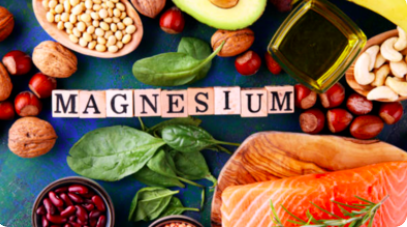Health
Understanding The Treatment Of Stomach Upset: A Comprehensive Guide

Understanding The Treatment Of Stomach Upset: A Comprehensive Guide
Stomach upset is a common ailment that can cause discomfort and inconvenience. Whether it’s due to indigestion, food poisoning, or other factors, finding the best treatment for stomach upset is crucial for relief and overall well-being.
In this comprehensive guide, we will explore the causes, symptoms, and effective treatments for stomach upset.
Causes of Stomach Upset
Stomach upset can be triggered by various factors, including:
- Poor dietary choices
- Food allergies or intolerances
- Stress and anxiety
- Infections
- Medication side effects
Symptoms of Stomach Upset
The symptoms of stomach upset can vary from person to person, but common signs include:
- Abdominal pain or cramps
- Nausea and vomiting
- Bloating and gas
- Diarrhea or constipation
- Heartburn or acid reflux
Best Treatment Options for Stomach Upset
When it comes to treating stomach upset, several approaches can provide relief. It’s important to note that the best treatment option may vary depending on the underlying cause and severity of symptoms. Here are some effective treatments:
1. Over-the-Counter Medications
Antacids, such as can help neutralize stomach acid and alleviate heartburn or acid reflux symptoms. Anti-diarrheal medications, like { “Imodium”}, can be useful for managing diarrhea. However, it’s essential to follow the recommended dosage and consult a healthcare professional if symptoms persist.
2. Probiotics
Probiotics, which are beneficial bacteria, can help restore the natural balance of gut flora and aid digestion. Consuming foods rich in probiotics, such as yogurt or fermented vegetables, or taking probiotic supplements can be beneficial for managing stomach upset.
3. Dietary Modifications
Adjusting your diet can have a significant impact on reducing stomach upset. Avoiding trigger foods, such as spicy or greasy dishes, caffeine, and alcohol, can help alleviate symptoms. Instead, opt for a diet rich in fiber, fruits, vegetables, and lean proteins to support healthy digestion.
4. Stress Management
Stress and anxiety can exacerbate stomach upset symptoms. Engaging in stress-reducing activities like yoga, meditation, or deep breathing exercises can help manage stress levels and improve overall digestive health.
5. Hydration
Staying adequately hydrated is essential for maintaining optimal digestive function. Drinking enough water throughout the day can help prevent constipation and promote regular bowel movements, reducing the risk of stomach upset.
6. Herbal Remedies
Some herbal remedies, such as ginger or peppermint tea, have been traditionally used to alleviate stomach upset. These natural remedies can help soothe the digestive system and provide relief from symptoms. However, it’s advisable to consult a healthcare professional before trying any herbal supplements.
Frequently Asked Questions
Can stress cause stomach upset?
Yes, stress and anxiety can contribute to stomach upset symptoms. Managing stress through relaxation techniques can help alleviate symptoms.
Are there any specific foods that can trigger stomach upset?
Certain foods, such as spicy or greasy dishes, caffeine, and alcohol, can trigger stomach upset in some individuals. It’s best to identify and avoid these trigger foods.
How long does stomach upset typically last?
The duration of stomach upset can vary depending on the underlying cause. In most cases, symptoms resolve within a few hours to a couple of days. If symptoms persist or worsen, it’s advisable to seek medical attention.
Can stomach upset be prevented?
While it may not be possible to prevent all instances of stomach upset, adopting a healthy lifestyle, including a balanced diet, regular exercise, stress management, and good hygiene practices, can help reduce the risk of stomach upset.
Are there any natural remedies for stomach upset?
A: Yes, certain natural remedies like ginger or peppermint tea can provide relief from stomach upset symptoms. However, it’s important to consult a healthcare professional before using any herbal remedies, especially if you have underlying health conditions or are taking medications.
When should I seek medical attention for stomach upset?
If stomach upset symptoms persist for an extended period, worsen over time, or are accompanied by severe pain, fever, or bloody stools, it’s crucial to seek medical attention promptly.
Can stomach upset be a sign of a more serious underlying condition?
In some cases, stomach upset can be a symptom of an underlying medical condition, such as gastritis, ulcers, or gastrointestinal infections. If symptoms persist or recur frequently, it’s advisable to consult a healthcare professional for further evaluation and diagnosis.
Conclusion
Stomach upset can significantly impact our daily lives, but with the right knowledge and treatment strategies, it can be effectively managed. By understanding the causes, recognizing the symptoms, and implementing appropriate treatment options like over-the-counter medications, probiotics, dietary modifications, stress management techniques, hydration, and herbal remedies, individuals can find relief and improve their overall digestive health. Remember, it’s always best to consult a healthcare professional for personalized advice and guidance.
Health
7 Fascinating Facts About Magnesium You Probably Didn’t Know

7 Fascinating Facts About Magnesium You Probably Didn’t Know
Magnesium is one of the most essential minerals for our health, yet many people are unaware of its significance.
This vital nutrient plays a crucial role in numerous bodily functions, from energy production to maintaining a healthy heart.
In this article, we will delve into seven intriguing facts about magnesium that may surprise you and help you appreciate its importance in your daily life.
What is Magnesium?
Magnesium is a naturally occurring mineral found in various foods and is vital for human health.
It is the fourth most abundant mineral in the body and is involved in over 300 biochemical reactions.
Magnesium contributes to nerve function, muscle contraction, blood sugar control, and blood pressure regulation.
It can be obtained from various dietary sources, including leafy greens, nuts, seeds, whole grains, and legumes.
1. Magnesium is Involved in Energy Production
Did you know that magnesium is essential for converting food into energy? This mineral plays a critical role in the activation of ATP (adenosine triphosphate), the energy currency of our cells.
Without sufficient magnesium, your body struggles to produce energy effectively, which can lead to feelings of fatigue and weakness.
How Does It Work?
ATP production occurs in the mitochondria, often referred to as the powerhouse of the cell.
Magnesium helps activate enzymes involved in this energy production process, ensuring that your body has enough energy to perform daily activities.
2. A Key Player in Bone Health
Magnesium is vital for maintaining strong and healthy bones. Approximately 60% of the magnesium in your body is stored in your bones.
It contributes to bone density and strength by regulating calcium levels in the body, which is crucial for bone formation.
The Calcium Connection
Calcium is often touted as the primary mineral for bone health, but magnesium plays an equally important role.
An imbalance of these two minerals can lead to bone-related issues such as osteoporosis.
Ensuring adequate magnesium intake is essential for maintaining optimal bone health.
3. Supports Heart Health
Magnesium is a crucial mineral for cardiovascular health. It helps maintain normal heart rhythms and can reduce the risk of heart disease.
Adequate magnesium levels are associated with lower blood pressure and reduced risk of heart attacks.
Regulation of Blood Pressure
Magnesium helps relax blood vessels, which can lead to lower blood pressure.
Studies have shown that individuals with higher magnesium intake tend to have better cardiovascular health. Including magnesium-rich foods in your diet can be an effective strategy for supporting heart health.
4. Magnesium and Mental Health
Emerging research suggests a strong link between magnesium levels and mental health.
Magnesium plays a role in regulating neurotransmitters, which are essential for mood stabilization.
Low magnesium levels have been associated with an increased risk of depression and anxiety.
Cognitive Function
Magnesium may also enhance cognitive function. Studies have indicated that adequate magnesium intake can improve memory and learning abilities.
This mineral is essential for brain health, making it vital for overall mental well-being.
5. Magnesium Deficiency is Common
Despite its importance, magnesium deficiency is surprisingly common.
Factors such as poor diet, chronic stress, and certain medical conditions can lead to low magnesium levels.
Symptoms of magnesium deficiency can include muscle cramps, fatigue, and irritability.
Risk Factors for Deficiency
Certain populations are at a higher risk for magnesium deficiency, including the elderly, those with gastrointestinal diseases, and individuals who consume a diet low in whole foods.
It’s essential to recognize the signs of deficiency and consider increasing your magnesium intake through diet or supplements if necessary.
6. Natural Relaxant
Magnesium is often referred to as a natural relaxant due to its calming effects on the nervous system.
It helps regulate cortisol levels (the stress hormone) and promotes relaxation, making it beneficial for those dealing with anxiety and stress.
Improving Sleep Quality
In addition to its relaxing properties, magnesium can improve sleep quality.
Many people find that magnesium supplements help them fall asleep faster and stay asleep longer, making it a popular choice for those struggling with insomnia.
7. Magnesium in Sports Performance
Athletes and active individuals often benefit from magnesium’s role in muscle function and recovery.
Magnesium helps prevent muscle cramps and can aid in post-exercise recovery by reducing inflammation and promoting relaxation.
Enhancing Athletic Performance
Research has shown that adequate magnesium levels can enhance athletic performance.
It is involved in muscle contraction and relaxation, making it essential for peak performance during exercise.
Conclusion
Magnesium is a powerhouse mineral that plays an essential role in various bodily functions. From supporting energy production to promoting heart health and mental well-being, its importance cannot be overstated.
Ensuring adequate magnesium intake through a balanced diet rich in whole foods can significantly enhance your overall health and quality of life.
If you suspect you may be deficient in magnesium, consider consulting with a healthcare provider to assess your levels and discuss dietary changes or supplements that may be beneficial.
FAQs about Magnesium
1. What are the best dietary sources of magnesium?
The best sources of magnesium include leafy green vegetables (like spinach), nuts (especially almonds and cashews), seeds (such as pumpkin seeds), whole grains (like brown rice and quinoa), and legumes (like beans and lentils).
2. How much magnesium do I need daily?
The recommended daily intake of magnesium varies by age and gender. Generally, adult men should aim for about 400-420 mg per day, while adult women should aim for about 310-320 mg.
3. Can I take magnesium supplements?
Yes, magnesium supplements are available and can be beneficial, especially for individuals who may not get enough from their diet. However, it’s essential to consult with a healthcare provider before starting any supplement regimen.
4. What are the symptoms of magnesium deficiency?
Symptoms of magnesium deficiency can include muscle cramps, fatigue, weakness, irritability, and irregular heart rhythms. If you experience these symptoms, consult a healthcare professional.
5. Is it possible to get too much magnesium?
Yes, while magnesium from food sources is generally safe, excessive supplementation can lead to toxicity, causing symptoms like diarrhea, nausea, and abdominal cramping. Always consult a healthcare provider before increasing your magnesium intake significantly.
References:
Health
Whooping Cough: Understanding Its Resurgence and Prevention

Health
The Power of Beans: Why This Superfood is a Nutritional Treasure
-

 Trending Stories1 year ago
Trending Stories1 year agoCDC: 1 in 4 Americans Still COVID-Free by End of 2022
-

 Health5 years ago
Health5 years agoMeghan Trainor Shares Motivational New Song ‘Blink’
-

 Health6 months ago
Health6 months agoHow Do Pawpaw Seeds Support Cardiovascular Health?
-

 Health2 years ago
Health2 years agoHow Long Does Monkey Pox Last Before It Surfaces in the Body?
-

 Health3 years ago
Health3 years agoWhat Causes Swollen Body? Understanding Edema and its Triggers
-

 Health3 years ago
Health3 years agoNutrition and the Importance of a Fitness Program – 3 Things to Know
-

 Health3 years ago
Health3 years ago5 Weird Reasons Why Pimples Disappear After Marriage
-

 Health2 years ago
Health2 years agoHealth Benefits Of Pawpaw Seed? 7 Things To Know






